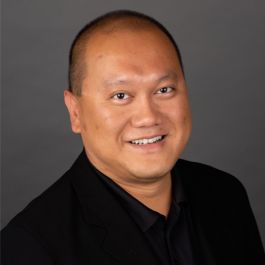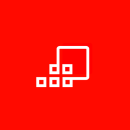‘Move Fast and Break Things’ Is a Terrible Hiring Strategy
“Move fast and break things” is a common dictum in tech. Unfortunately, when it comes to hiring, rushing the process can take a huge toll on engineering teams.
Bad hires are expensive in a multitude of ways. Financially, the U.S. Department of Labor estimates that the average cost of a bad hiring decision is “at least 30 percent of the individual’s first-year expected earnings.” Culturally, a bad fit can drag down morale and make it more challenging to hit team goals.
For tech teams under pressure to scale, it’s challenging to walk a tightrope between filling roles quickly and finding a cultural fit who will add value in the long term. Eric Wang, senior vice president of engineering at Austin-based Hypori, advises engineering managers to “evaluate individuals based on results and deliverables, not just to get butts in seats.”
Wang recently navigated rapid scaling as Hypori expanded its market from serving government clients to commercial and enterprise organizations. To keep up with demand, the company got creative with hiring by removing geographic boundary limitations.
Austin-based Reibus International doubled its size in the past ten months. That growth didn’t come without tough decisions.
“We have a strong culture, and culture interviews are the most important interviews in the entire process. We have turned down many highly talented engineers who weren’t a cultural fit,” said Chad Walters, vice president of engineering at Reibus.
Rapid growth often requires companies to reassess process, structure and priorities. However, Walters cautions, “Don’t neglect the people who are already working for you.”
Built In Austin sat down with these local engineering leaders to learn more about their engineering team’s recent growth and some of the scaling lessons they learned along the way.
Hypori offers secure data software for mobile devices.
Tell us about your engineering team and your role on it. Why did it need to be expanded so quickly?
Hypori’s engineering department is made up of four teams: platform, quality, clients and cloud. My job is to work with the teams to continuously produce and maintain a reliable, secure and high-quality SaaS product while ensuring the platform continues to evolve as a cloud native solution for scalability and expansion.
We have been expanding and growing our team since Q4 2021 because Hypori’s customer base shifted to include commercial and enterprise organizations. We saw that security and privacy is not only important to the government, so Hypori expanded to include financial services, healthcare, insurance and technology industries.
Covid-19 also meant an unprecedented increase in remote work. For Hypori, this means more people need to conduct corporate business from their personal devices. The increase in demand for Hypori’s product resulted in needing more talented engineers to support the workload and evolve the product for the cloud.
What did you learn in the process of scaling? Were there any hiccups or aha moments to share?
In this competitive market finding the right talent is hard. Pre-pandemic, Hypori was primarily sourcing candidates from Austin or within Texas. We quickly realized that wasn’t a scalable strategy.
To expand, we realized that management teams must be open minded in looking for talent. For smaller companies this means resisting the urge to limit the search to only the city or state where the company is, sourcing candidates throughout the country.
Do not limit the search to only the city or state where the company is; source candidates throughout the country.”
Additionally, we have built a healthy remote working culture by following agile practices. We ensure the scrum team is built with all appropriate resources and treat team members equally regardless of their location. Finally, all members of the scrum team must be included in a variety of meetings as part of the agile ceremony.
What’s the most exciting project your engineering team will be taking on in the next few months?
There are many exciting projects the Hypori team is currently working on. Hypori is in the cloud, and the company is going through a SaaS transformation with Agile methodology and a DevOps philosophy as the basis of the transformation.
We are also in the process of refactoring and transforming the platform based on microservices architecture, as well as utilizing containers and orchestrating via Kubernetes in the cloud. We take the cloud-first approach, and we are looking for talented engineers who’d like to be part of the team transforming how the world sees and uses virtual workspaces in the future.

Reibus is a SaaS-enabled supply chain marketplace.
Tell us about your engineering team and your role on it. Why did it need to be expanded so quickly?
Reibus engineering is a cross-functional, agile team of very motivated and smart developers, alongside quality engineers and managers. The department is divided into small teams that share common goals, autonomy, a customer-first mentality and a strong sense of ownership to get things done. Our current team size is 53, and we’re based in Atlanta, Austin, and Central and South America.
I hire and mentor great leaders, foster a culture where everyone performs at the top of their game, provide technology direction and focus software delivery on the customer experience.
Reibus is growing at lightspeed and expanding means that we quickly evolved from a startup to a mature organization. We needed to grow our seniority, increase engineering capacity and round out skill sets.
In 2022 we must transform our digital platform and align with key business objectives. We must focus on automation, scalability, security and compliance as we expand internationally.
What was the process of scaling like and how long did it take? Were there any hiccups or aha moments to share?
In the last 10 months we doubled our team size from 21 to 53. Recruiting is the most important part of the process, and doing it right is very hard. The market is competitive, so we need to build a solid pipeline, partner with recruiters and communicate well with our team members.
It’s very important for the company to keep talking about culture. We must all be on the same page with culture if we want to bring on the right people.
We must all be on the same page with culture if we want to bring on the right people.”
I invested heavily in managers and technical leaders. To scale, I needed leaders who could delegate, organize, lead and build their own teams. I provided them the tools and processes needed to be successful. Aligning technical leads with my managers helps my organization focus on quality and improving our technology.
We religiously align engineering with product owners to focus on delivering the right things. And we continuously improve ourselves through a formalized coaching structure that keeps us all improving.
What’s the most exciting project your engineering team will be taking on in the next few months?
Credit automation will be a huge win for both our customers and the internal credit team. Through automation on our online credit platform, we can streamline a manual approval process that typically takes weeks and reduce that time down to hours or even minutes.








